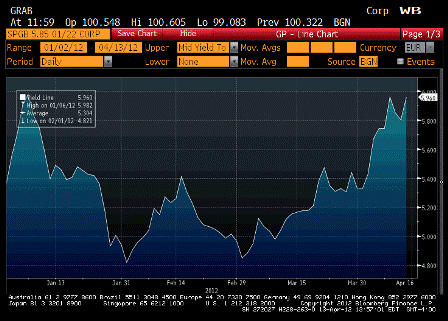Obviously neither the author nor CNBC understands the fundamental difference between the issuer of the euro and the users of euro.
In fact, the ECB as per the treaty has no capital requirement, nor does it have any particular use for capital.
However, a general belief has been expressed by various higher ups to the effect that negative ECB capital would somehow be inflationary, and therefore the current imperative for the ECB to have sufficient capital, whatever that means.
So the presumption is any losses the ECB realizes will be ‘matched’ by capital calls to the member nations. Hence the reluctance by the ECB to give Greece, for example, any discounts on the Greek bonds in the ECB’s porfolio.
European Central Bank Leveraged Like Lehman: Author
By Patrick Allen
May 10 (CNBC) — The European Central Bank is indebted to the hilt and is beginning to look like one of the banks it has done so much to save, according to author Satyajit Das.
Having subsidized the European banking industry with its 1 trillion euro ($1.29 trillion) long-term refinancing operation (LTRO), funds that were distributed at well below market prices, the central bank is leveraged to levels Bear Stearns and Lehman Brothers might have felt comfortable with in early 2007.
“If the European Financial Stability Fund was a collateralized debt obligation, the ECB increasingly resembles a highly leveraged bank. The ECB balance sheet is now around euro 3 trillion, an increase of about 30 percent just since Mario Draghi took office in November 2012,” said Das in notes sent to CNBC before an interview on “Squawk Box Europe” on Thursday.

